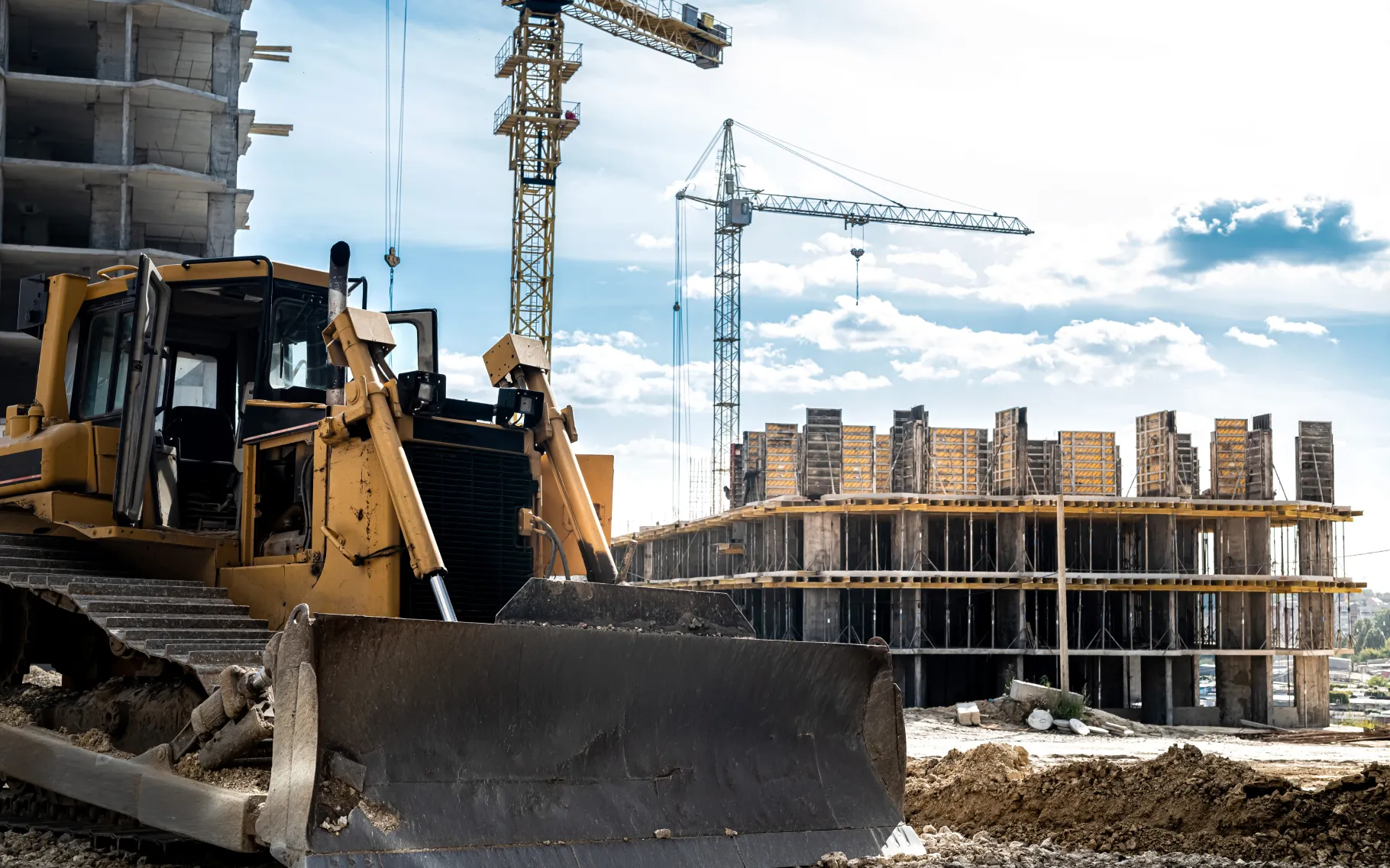Whether you’re a property developer or a contractor, you’ll certainly navigate the permitting process throughout your career. Building permits are required before beginning many types of construction projects to ensure the project is safe and adheres to local regulations.
Read on to learn more about what building permits are, when they’re required, and how you obtain them.
What is a building permit?
A building permit is a government-issued document that allows an individual or an organization to begin a construction project — whether that’s building a new structure or renovating an existing one.
The purpose of a building permit is to ensure that any proposed construction is:
- Structurally sound
- Fire resistant
- Designed with proper egress (exiting)
- Safe for use
- Mindful of water, sewer, and electrical lines
Before any large-scale renovation or construction projects can begin, the party must apply for a building permit with their appropriate local government agency. The government agency then reviews the application to ensure the project complies with local laws, land use standards, and construction ordinances.
Once your building permit has been approved, you can start work on the project. In many cases, a local inspector will visit the construction site to assess the work being done and ensure it complies with all local codes.
Pro tip: Many jurisdictions require you to pull a building permit and a zoning permit. Here's the difference between them.
Building permits vs. trade permits
While a building permit is generally the broader, overarching permit that informs the local jurisdiction of the project, a trade permit is any permit related to a specific component of the building.

For example, you may need a trade permit for projects involving:
- Mechanical
- Electrical
- Plumbing
- Fire protection
Multiple parties — including owners, contractors, and designers — can apply for a building permit. In contrast, the contractor who performs a specific trade will apply for a trade permit.
When do I need a building permit?
Any construction project that involves more than just simple interior upgrades requires a building permit.
The two biggest factors that impact building permit requirements are:
- The type of construction (residential, commercial, multifamily, etc.)
- Your jurisdiction and its governing laws and ordinances
Keep in mind that commercial construction projects tend to have stricter permit requirements than residential building permits. For example, painting the exterior of a commercial building may require a permit in some jurisdictions, while painting the exterior of a residential, single-family home won’t.
Situations that require a building permit include but aren’t limited to:
- Constructing a new residential or commercial building
- Adding a garage, a deck, a porch, an ADU, or any other structure onto a lot with an existing home or building
- Expanding or demolishing an existing house or commercial building
- Adding a large swimming pool to a residential lot
- Installing or replacing HVAC equipment
- Installing or demolishing walls in a house or building
- Installing or replacing a roof
- Finishing a basement
- Installing solar panels
- Installing EV charging stations
- Installing a generator
- Installing a fence
- Installing siding
- Installing or replacing windows
When is a building permit not required?
You don’t need a building permit for most minor improvements or cosmetic changes.
Some examples of projects you can complete without a permit include:
- Repainting a residential house
- Installing kitchen cabinets in a house without adjusting the kitchen’s layout
- Replacing carpet in residential and commercial buildings
- Repainting interiors of commercial and residential buildings
What happens if you build without a permit?
If you build without a permit, you could be charged fines depending on your state and jurisdiction. Additionally, owners who construct or renovate without proper permitting could have trouble selling the property in the future.
What’s more, in the event of a major issue — like a fire or structural collapse — your insurance policy may not cover the damage if the problem was caused by work completed without a permit.
If you’re working with a contractor who is handling the permit application, make sure they have obtained the proper permit(s) before they begin work on the project.
How to get a building permit
Unfortunately, the process of obtaining a building permit depends entirely on your location. Each state and jurisdiction has its own policies and processes.
However, here’s a high-level overview of the permitting process:
- Gather your documentation. Check your jurisdiction’s website to find a list of requirements to apply for a permit. Every jurisdiction is different, but having a general building permit template can serve as a good starting point.
- Provide your designs. Make sure a professional, trusted architect or engineer has drawn up your plans. For best results, work with someone familiar with your jurisdiction.
- Consider requesting a pre-permit review meeting. Some jurisdictions offer pre-permit meetings to help you understand the process before you submit your request.
- Submit the application and pay the fees. Carefully review your application before submitting it, and make sure you’re prepared to pay the associated fees on time.
- Post your building permit. As you begin work, make sure your building permit is visible at the site.
How long does it take to get a building permit?
It can take anywhere from one week to a few months — or even years in certain areas like California — to obtain a building permit.
Permit wait times generally depend on your location, project complexity, and the type of permit you’re seeking. Commercial permits often take longer than residential permits.
Tip: Save time by working with permitting software that can prepare, submit, manage, and monitor your permit requests. Choose a platform like PermitFlow to simplify the entire process.
How much does it cost to get a building permit?
The cost of a building permit varies widely depending on the jurisdiction and the type of permit you’re seeking. For example, a permit to upgrade an electrical circuit could cost as little as $50, while a commercial construction permit for a new building could cost $10,000 or more.
Many jurisdictions have permit fee calculators available online to help you estimate the cost of obtaining the permit you need. A good rule of thumb is to assume that the permit will cost 5-18% of your total budget.
How long does a building permit last?
The length of time a permit lasts depends on the jurisdiction. On average, building permits last for 6 months.
Ready to simplify the permitting process?
If you’re ready to begin the permitting process for a new project, make the process as painless as possible with PermitFlow.
PermitFlow is easy-to-use building permit software that saves your team time. Let PermitFlow handle the permit preparation, submission, and tracking across all municipalities you’re building in so you can focus on higher-value tasks.
Contact us to learn more about how PermitFlow can save you time on permitting.








